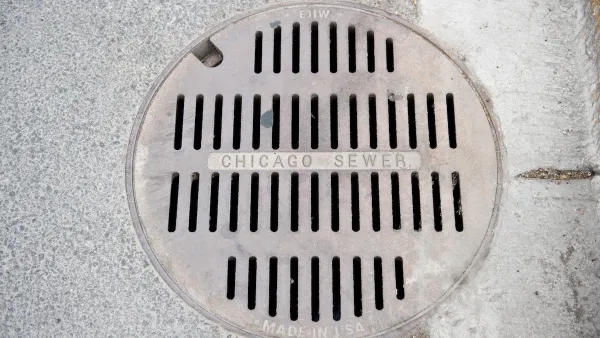Only one coastal city has a sewer system that must handle stormwater as well as wastewater. San Francisco's efforts to adapt its combined sewer-stormwater system has put it on the vanguard of the city's climate adaptation efforts.
"Using combined systems was common practice for urban sewers built before the turn of the 20th century, said [San Francisco Public Utilities Commission] PUC General Manager Harlan Kelly Jr., when wastewater and rainfall both were typically dumped into nearby bodies of water," reports Dominic Fracassa for the San Francisco Chronicle on Oct. 21.
Because the city's sewer system can be easily overwhelmed during heavy downpours, and is vulnerable due to king tides and sea level rise, all of which will become more intense due to climate change, the San Francisco Public Utilities Commission, which provides retail drinking water and wastewater services to the city of San Francisco, is at the forefront of climate adaptation efforts.
The PUC’s improvement program will be rolled out in phases through 2032. The improvements themselves — everything from replacing outdated sewer pipes to raising critical electrical systems in treatment plants in anticipation of the higher sea waters — are designed to respond to how San Francisco’s climate could look in the year 2100.
Another critical element of the PUC plan is an ambitious program of installing bioretention or rain gardens to divert stormwater from the sewer system and allow it to be absorbed into the ground. "[B]y allowing natural processes to take over the work we've been building infrastructure to handle, operations and maintenance costs also fall," according to a 2012 study on green infrastructure co-authored by the American Society of Landscape Architects.
In August, Fracassa reported on a ribbon-cutting by the PUC for the first of the eight rain gardens planned for the Ingleside district, an investment of $7.3 million.
FULL STORY: SF embarking on major projects to bolster sewer system

Analysis: Cybertruck Fatality Rate Far Exceeds That of Ford Pinto
The Tesla Cybertruck was recalled seven times last year.

National Parks Layoffs Will Cause Communities to Lose Billions
Thousands of essential park workers were laid off this week, just before the busy spring break season.

Retro-silient?: America’s First “Eco-burb,” The Woodlands Turns 50
A master-planned community north of Houston offers lessons on green infrastructure and resilient design, but falls short of its founder’s lofty affordability and walkability goals.

Test News Post 1
This is a summary

Analysis: Cybertruck Fatality Rate Far Exceeds That of Ford Pinto
The Tesla Cybertruck was recalled seven times last year.

Test News Headline 46
Test for the image on the front page.
Urban Design for Planners 1: Software Tools
This six-course series explores essential urban design concepts using open source software and equips planners with the tools they need to participate fully in the urban design process.
Planning for Universal Design
Learn the tools for implementing Universal Design in planning regulations.
EMC Planning Group, Inc.
Planetizen
Planetizen
Mpact (formerly Rail~Volution)
Great Falls Development Authority, Inc.
HUDs Office of Policy Development and Research
NYU Wagner Graduate School of Public Service




























